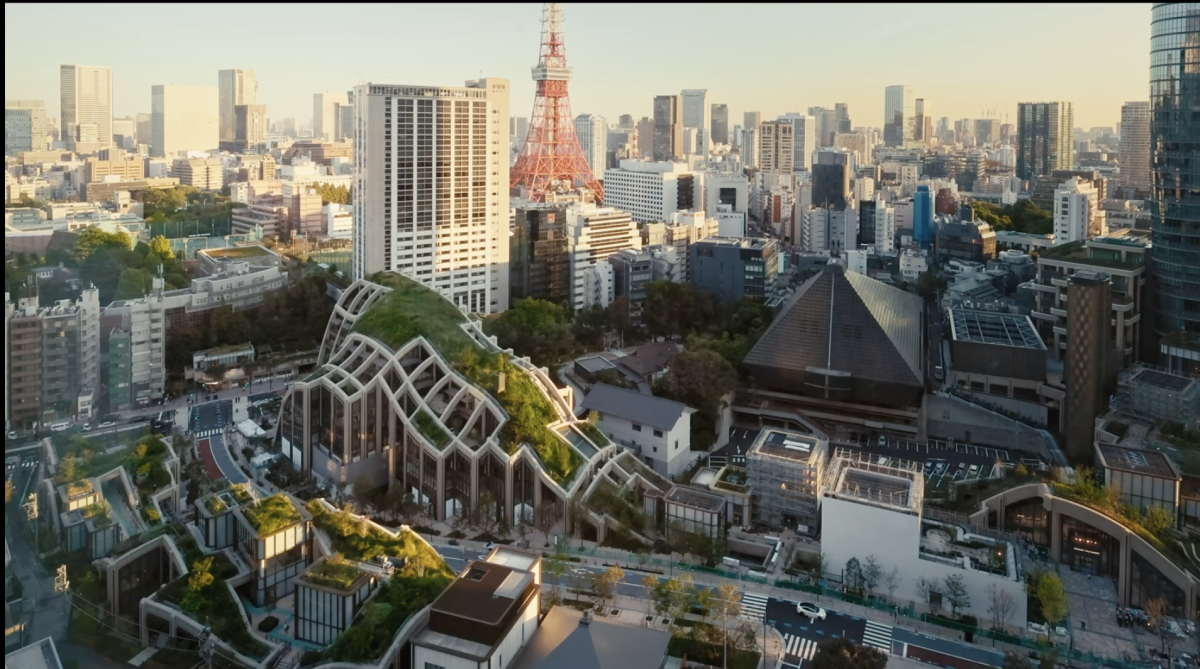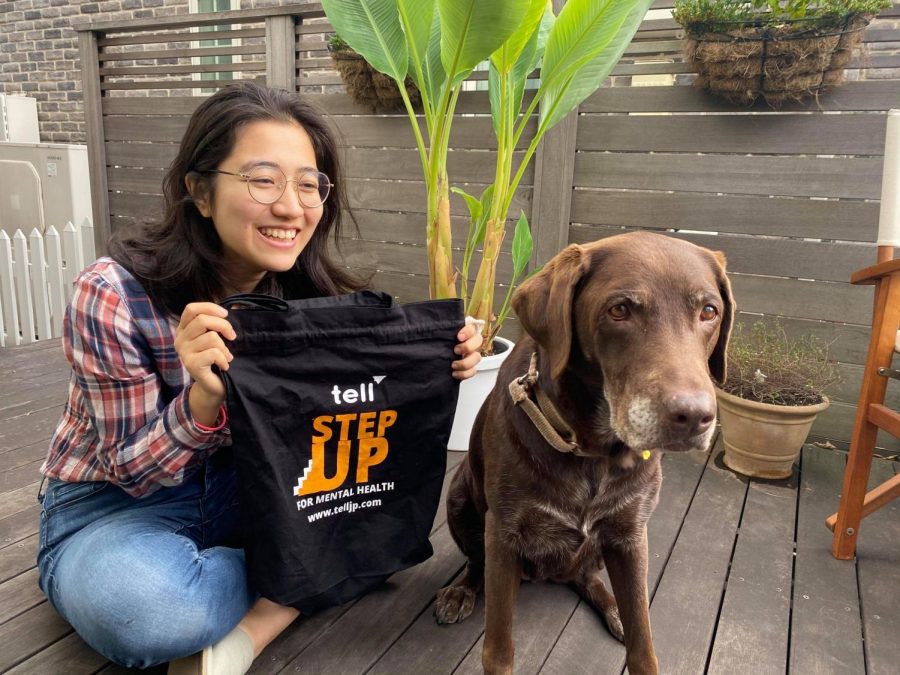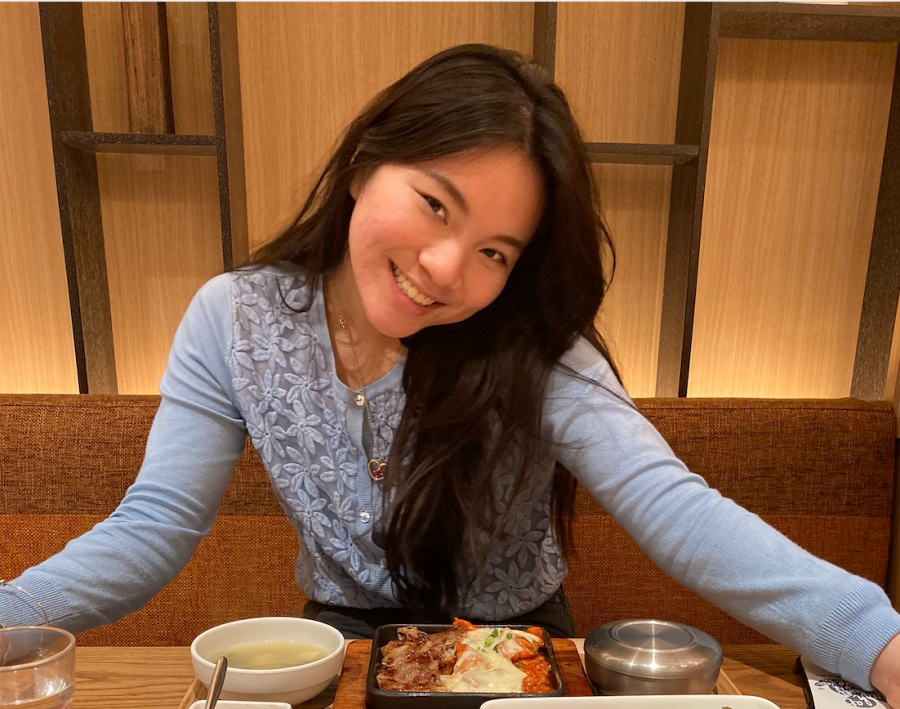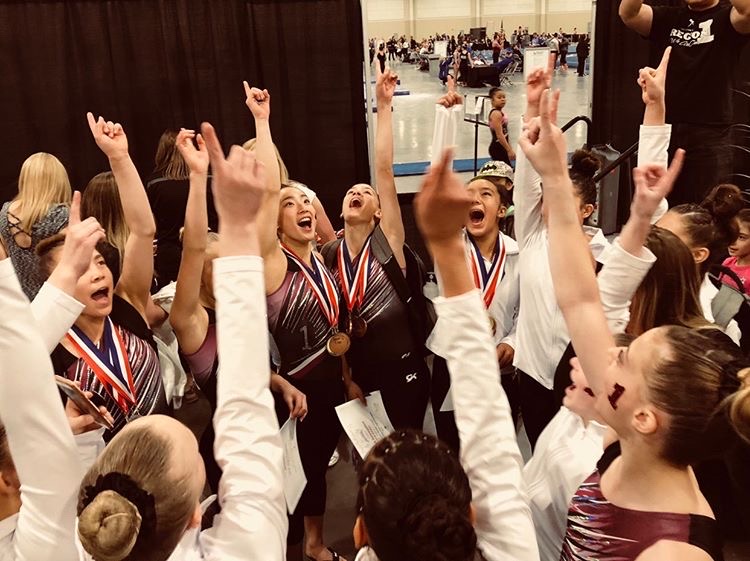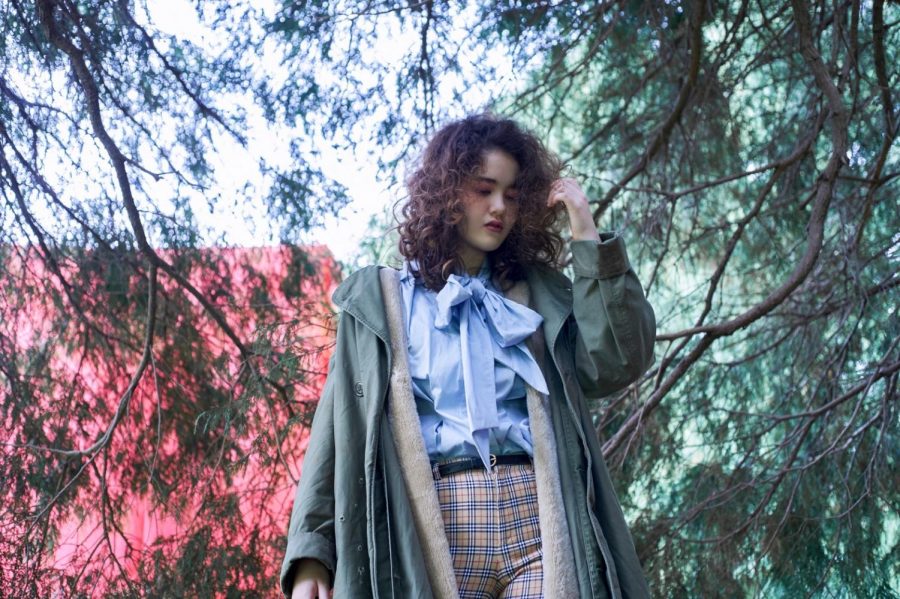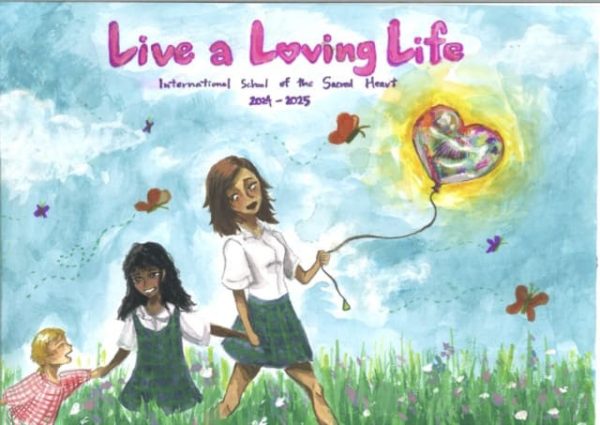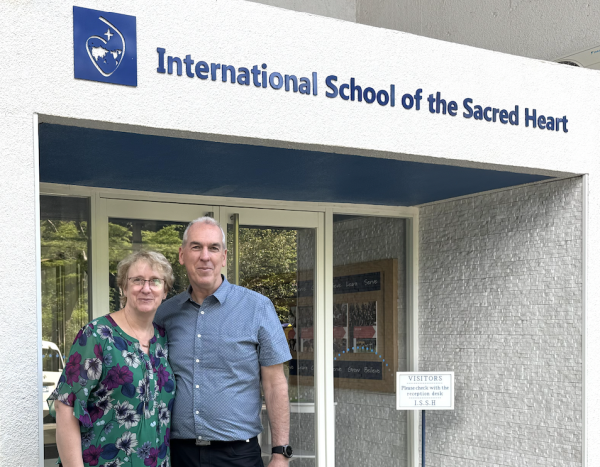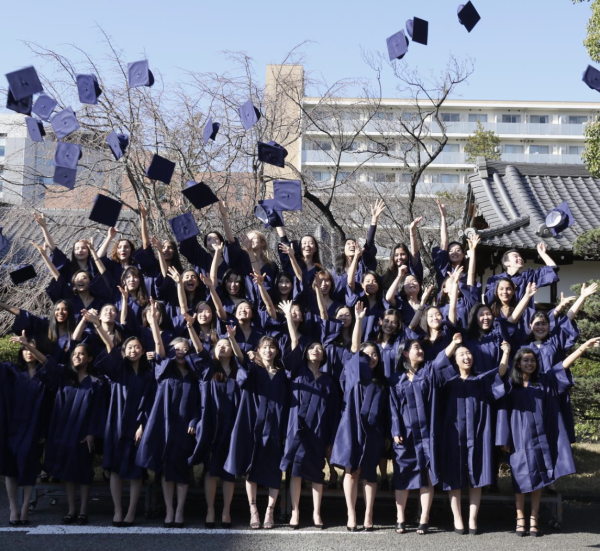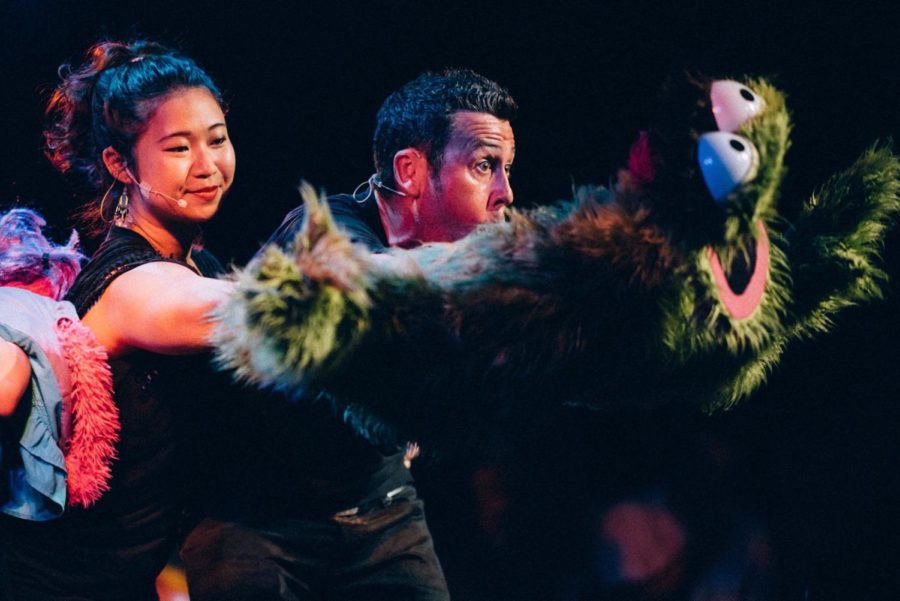Ms. Mizuno
John Mathews
“I had an interesting childhood because I was born in Tokyo, but before I knew it, I was in a town called Darwin, in Australia. Darwin was and is a very tiny, very multicultural city, with lots of Asian immigrants, so there was a lot going on. But there was a lot of racism as well, so even though it was multicultural, I think I had to learn how to find my group and how to defend myself. But being an outsider also helped me be a floater and I never really had one core group of friends. Around this time I started to realize that making fun of yourself through self-deprecating jokes makes it easier to get by. And that’s how I got through as a kid. There weren’t a lot of Japanese people living in Darwin at the time, so I practiced my Japanese through watching Japanese shows and anime my aunt and grandmother would send on VHS. My mum also made me do Kumon which I was really bad at.
I moved from Darwin to Cairns in grade 11, because of my parents’ job. That was awful. For once I had a good core group of friends, a boyfriend, and didn’t want to move school because grades 11 and 12 are meant to be the best times, right? So I had to say bye to my friends and break up with him. It was a lot harder then to keep in touch with people because social media wasn’t a thing yet. I hated my parents, I hated my new school, and I didn’t want to make new friends. I did have some good times towards the end, but I wished I was at my old school. I just couldn’t wait to get out of there. I had the best university years, so I guess it all evens out in the end.
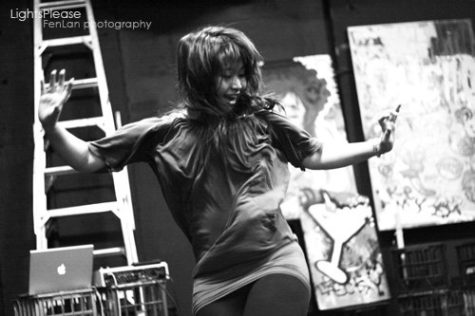
I always liked performing and wanted to be a dancer. But, that changed because I had an awful teacher who told me that I couldn’t dance. This was another reason I hated grades 11 and 12. The teacher had favorites. I was new, and I didn’t know how to tap dance, which was what was required to be in the school talent show. I also didn’t have the shoes, so the teacher had to lend them to me. But she would lend them first to the other girls, and then after they finished using them, I would have them for a little amount of time before class ended. So I eventually got kicked out because the teacher told me I couldn’t dance. I didn’t understand and was very hurt at the time because I knew I just needed more time with the shoes. But now, looking back I think it’s just awful to tell such a young person that you can’t do something. Especially when you are in a position of power, a teacher of all people shouldn’t be telling a student that they are not worth their time. No one should ever tell anybody they can’t do anything, ever. So then poor 15-year-old Mizuno was like, “Ok, I suck, because the teacher told me so. She must be right since she’s an adult. You will never be a dancer because you suck, Mizuno.” But because of what happened with my school dance teacher, now I have learned first hand that you have to choose your words, especially with young people, and never tell anybody that you can’t do anything. Because, you never know, and it isn’t up to them to tell you what you can and can’t do when they don’t even know you.
In grade 11, once I no longer felt like I should dance, I thought the next closest thing was acting. Luckily, my drama teacher at this new school was just awesome, very supportive, gave me an outlet, and then I was like, “Alright, I wanna do this,” and I applied to a university that did drama. At university, I met an amazing woman, Anna Yen. She is a Physical Theatre Practitioner, Director, and writer. Physical Theatre is kind of like dance and theater combined, and it’s more expressive, rather than using a lot of words. She introduced me to this outlet where you don’t have to be a dancer in order to move and express yourself on stage. She became my mentor and we still keep in touch. She taught me how to have my confidence back, so I have taken dance classes since then, and now I do a lot of choreography and dancing in my work.
I love theatre because of its live energy. It transports you to another place and another dimension. The energy that you get from a performance— with the lighting, the set— it’s truly whimsical. Someone once said to me that theater is anthropology, which I totally agree with. It always reflects society of its time, whenever those plays were written and even contemporary ones as well. Good theatre always gives something to think about and talk about. I think doing theater has given me a tool to think and continue to explore the meaning of life. It’s also made me realize and appreciate moments with people and everything we are and have become. You don’t need to be a theater person to find joy in people and their energy and what they can do, but everything is emphasized when it’s on stage.
I’ve had so many highlights in my career. I taught at a few schools, but working at Sacred Heart has been great. You are all very sweet. I’m sure there’s a lot going on in each individual, growing up and discovering yourselves, but it’s just been so awesome working here and being creative with you all. Another highlight is being able to work on my own shows and direct shows in Japan and in Australia. Just working with different people, having a team that you can trust and bring your vision to life, showing your work to a bunch of people, and then feeling a sense of accomplishment together.
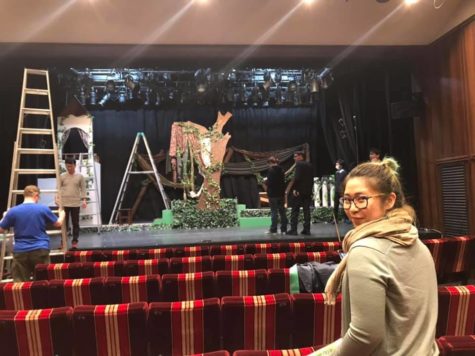
I’ve been working with groups called TIP (Tokyo International Players) and TIP Youth in Tokyo, as well as Tokyo Theatre for Children. TIP Youth is an English Theatre Company for teens and I’ve been doing a show every year with them, except this year, of course. But every show we do, I see the teens grow as people. Facing their fears and opening up. I see more confidence in them each time. I cry every single time I see these kids perform. I honestly think I am so lucky to be able to call that my job as well!
The biggest challenge I have faced so far in my career is definitely the pandemic we are currently in. But there have always been a lot of challenges in every project that I do, a lot has to do with people, and it’s because when you’re working with people’s ideas and their creativity, there can be a lot of drama. It is stereotypical, I know, and I hate it, especially when people are like, “Drama in drama!” But working with people is hard and beautiful. It is true, there are some interesting things that happen with a group of people who are just very eccentric and creative. But it is always so worth it.
Another thing I had to face is people saying, “But drama is not an academic subject.” No, it can be very academic, and it’s an amazing subject that merges creativity, interpersonal skills, and empathy. Emotional intelligence is actually very important for a person, not only in the performing arts but in general society. Learning this requires a lot of thinking and academic understanding. So that has been a constant battle within my career. Especially now with COVID-19, a lot of people have been relying on the arts. People watch Netflix, listen to Spotify, and have turned to connect with people through dancing on TikTok and making funny skits. All these subscriptions have gone up since COVID-19, yet there is not a lot of respect and appreciation for the arts. It has been a constant battle. The Arts are always to be cut when it comes to government funding. But also I know it’s important, so that’s what matters. I think what is important is that you surround yourself with like-minded people, the people you love, and those who will give you that understanding and support.
Luckily so many people have motivated me throughout my life. My mum is a visual contemporary artist, and she’s been such an inspiration to me. Speaking of inspirations, I also have my best friend with whom I do a podcast. He is a professional musician and I have known him since we were super young, and we always said, “I will meet you at the top.” I know that’s super cheesy, but we kind of push each other to do better and never give up.
I would tell my past self, “You are better than you think you are.” I’ve had to fight a lot, and stand up for myself as an Asian, in Australia especially, being in the arts, and not doing something more ‘academic’. When I was in grade 11, I wasn’t doing very well in higher maths, so I changed to a simple maths class, and this one boy came up to me and said with a serious face, “What are you doing Kimmy?” and I said, “What do you mean?” and he said, “Why are you dropping this class?” I went, “Well, I’m failing, and I don’t want to fail.” And he replied, “But you’re Asian, us Asians are meant to be good at maths” to which I responded, “Okay, yes, and? What’s your point?” So I had to stand up for myself from the stereotypes and that’s one of many things I constantly feel like I’m pushed to “explain myself.”
So to my teenaged self, I would tell her, “Just believe in yourself a little bit more, you can do more than you think, be kind to yourself, and what you are doing is meaningful.” Like I said, being a young Asian female in the arts has been difficult, sometimes I wish I was a man. I feel that it would be easier to assert oneself in this industry and in general since there is still this whole stigma of women being emotional and weak. There are great women out there that have been changing this whole stigma, and we are having more conversations about it, so it’s getting better, but we still need to keep fighting. I’m willing to continue fighting for a balanced representation of Asian women in the arts.
To anyone who wants to work in the performing arts: believe in yourself. You will be told you can’t do it, over and over again. You will be told to “Not give up your day job,” and you will be ridiculed along the way. But don’t listen, and just continue as long as you want to do it. Also, teaching is amazing, teach! People have often said to me that “Teaching is a good backup plan”— no, teaching is not a backup. Teaching is the core thing, it’s what helps me continue being creative, and inspired by so many young people, and then I use that energy in my arts. So, I would say, teach and be artists. Share your intellect through creativity and help people find their voice. Just follow what you believe in, don’t listen to negativity, and just keep on keeping on.” —
Ms. Mizuno









